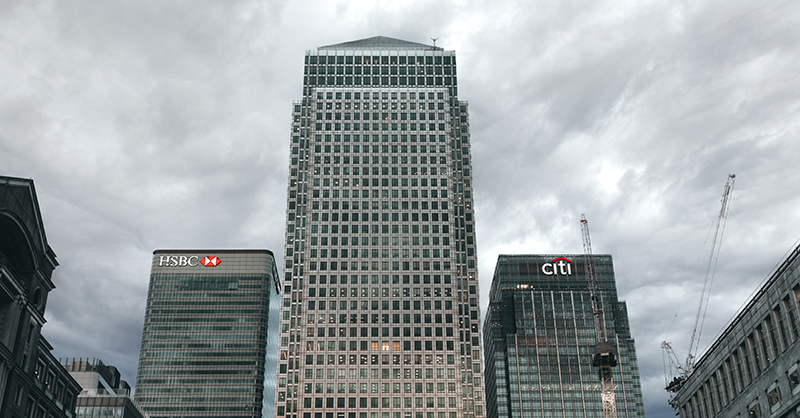Farage banking shut-out shows UK lenders caught between a rock and a hard place
30 June 2023 14:40 by Martin Coyle

A UK bank’s decision to close accounts linked to pro-Brexit politician Nigel Farage comes at a time when the country's banking sector is caught between a threat of big fines and a push to make it easier for politically exposed persons to access banking services.
Under national law, banks are obliged to take additional steps to ensure that PEPs aren’t using their positions illegally, meaning that anyone considered as such — whether living in the UK or abroad — has to follow the same rules to bank in the country.
This has led to UK politicians complaining that they're being subjected to excessive bureaucracy. Farage said yesterday that he is considering leaving the UK after his bank said it was shuttering his accounts.
Farage said the unnamed bank, which he described as a “subsidiary” of a big banking group with a “prestigious name” had recently informed him that his accounts were being closed and that he would have to bank elsewhere.
The Times has previously reported that he banks with London-based private bank Coutts, which is owned by NatWest Group. The bank didn’t respond to a request for comment today.
Farage, who was at the forefront of the campaign to take the UK out of the EU, said he was given no reason for the decision. He said that he subsequently approached another “six or seven” UK lenders, who all refused to take him as a client.
“There's nothing irregular or unusual about what I do. The payments that go in and come out every month are pretty much the same,” Farage said yesterday.
“The establishment are trying to force me out of the UK by closing my bank accounts,” he added on Twitter, saying he was being persecuted for his political views.
He said that the decision to deny him banking facilities could be linked to his status as a PEP.
“The law recognizes the risk of PEPs abusing their positions for private gain and using the financial system to launder the proceeds of this abuse. PEPs, as well as their families and close associates, must therefore go through enhanced scrutiny when using the services of certain firms that act as ‘gatekeepers’ to the financial system, such as banks,” a recent government paper on PEPs said.
Risky business
It may become easier for PEPs living in the UK to access banking services when the Financial Services and Markets Bill becomes law. But for now, despite the complaints from lawmakers, the risks are real for banks.
Banks that fail to adequately put in place appropriate checks face significant fines. Bank officials can also be jailed or heavily fined for not taking the correct steps.
In 2015, Barclays was fined 72 million pounds (around $90 million) for PEPs failures, and in 2020, Commerzbank was fined 37 million pounds for similar failings.
Fines such as these have led to some lenders de-risking their client base, meaning anyone who represents an unacceptable risk is jettisoned. The UK’s Financial Conduct Authority has previously warned that banks need to use common sense and not dump customers wholesale due to de-risking. But this doesn’t mean that banks will take a pragmatic approach to dealing with risky customers.
Nervous lenders
The FCA has also lately taken a more aggressive approach toward UK lenders that fail to follow the anti-money laundering rules. NatWest became the first UK lender to be criminally prosecuted when it was fined 264.7 million pounds in December 2021 for massive money laundering failures.
This increased regulatory, financial and reputational risk is making lenders increasingly risk-averse when dealing with risky individuals. In March 2022, Labour lawmaker Chris Bryant said Farage had received more than 500,000 pounds from the Russian state, a claim that Farage denied and Bryant hasn't repeated.
There is no evidence that Farage has any links to dirty money. Still, claims such as these, made in Parliament amid a crackdown on Russian money caused by the invasion of Ukraine, might have caused nervousness in banks' compliance departments, and led to an unwillingness to take him on as a new customer.
Banks aren’t obliged to give details of their decisions about customers, so it’s unlikely we will find out exactly why Farage has been dumped. But it seems Farage has become another example of an increasingly risk-averse UK banking sector.
With the huge fines the sector faces for getting it wrong, banks will say they have little choice despite Farage’s claims of persecution. It's difficult to argue with that logic, despite the unintended consequences of de-risking, which could see individuals taking more opaque routes to move their money around.
Related Articles
No results found
